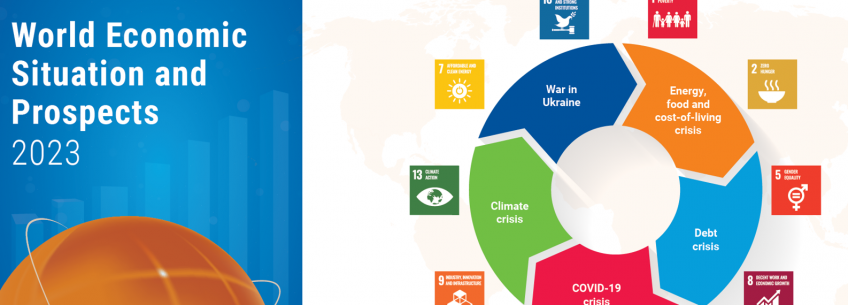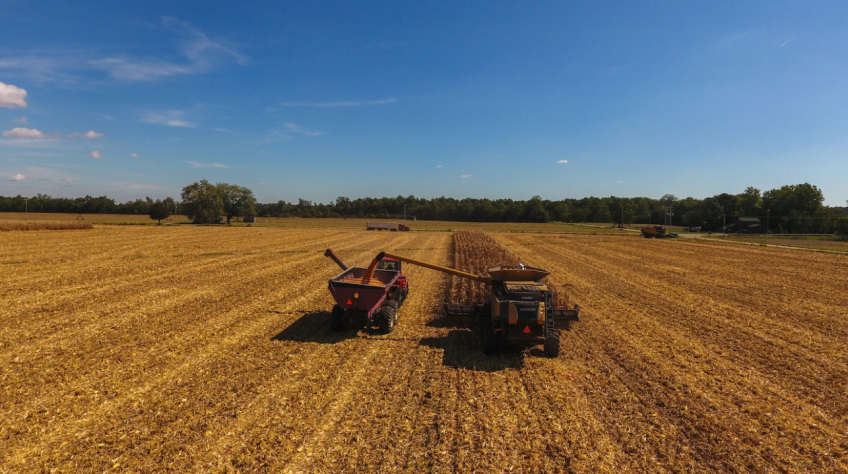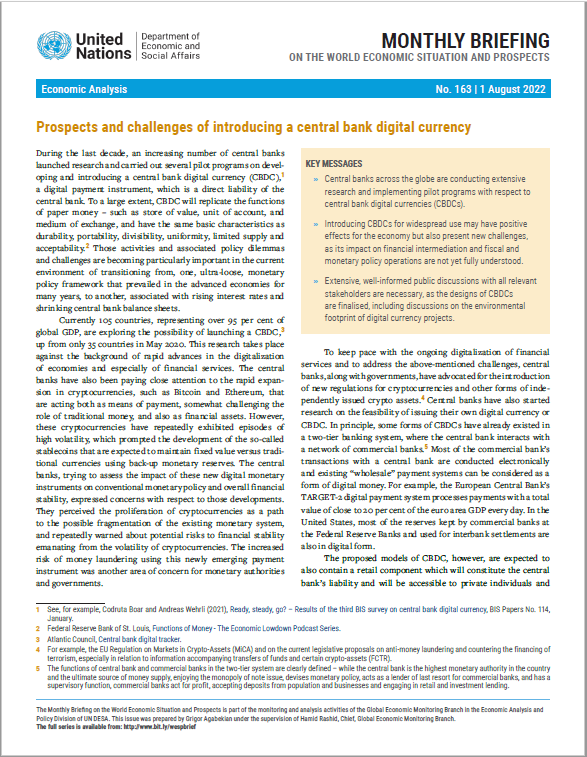Document_GEM: Monthly Briefing on the World Economic Situation and Prospects
Monthly Briefing on the World Economic Situation and Prospects
3 April 2023
Monetary policy cycles in developing countries will increasingly diverge in 2023 as several central banks are expected to further raise interest rates, while others may find policy space to hold, or even cut, rates.
1 March 2023
The lingering war in Ukraine has been weighing on global economic activity since early 2022, undermining post-pandemic recovery. The initial impact of the conflict on energy and commodity prices appears to have waned, although some risks on the supply side may re-emerge, and challenges to Europe’s energy security remain.
1 February 2023
Persistently high inflation in both developed and developing economies is eroding real incomes. External financing conditions for developing economies have deteriorated due to the monetary tightening measures to counter inflation in developed economies.
3 January 2023
It is crucial for central banks to maintain a “nominal anchor” to stabilize inflation expectations. Currently, exchange rate targeting, monetary aggregate targeting, and inflation targeting are used as nominal anchors.
1 December 2022
Governments, households, and firms across Europe are grappling with the energy and cost-of-living crisis. The recent decline in natural gas prices has, however, fuelled hopes that massive gas shortages, rationing, and industrial shutdowns can be avoided.
1 November 2022
As the world falls further behind from its goal of ending hunger (SDG 2), countries must act to protect open and stable global food trading systems and urgently provide targeted humanitarian action to save lives and livelihoods.
3 October 2022
A stronger U.S. dollar will likely exacerbate inflationary pressures, worsen fiscal and external balances and hinder recovery in developing countries, undermining their prospects for achieving the Sustainable Development Goals.
1 September 2022
Amid health, climate, food security and geopolitical crises, strengthened and effective multilateral cooperation will remain critical to stimulate growth, support the most vulnerable and put the world economy on track towards sustainable development.
1 August 2022
Introducing CBDCs for widespread use may have positive effects for the economy but also present new challenges, as its impact on financial intermediation and fiscal and monetary policy operations are not yet fully understood.



















Follow Us